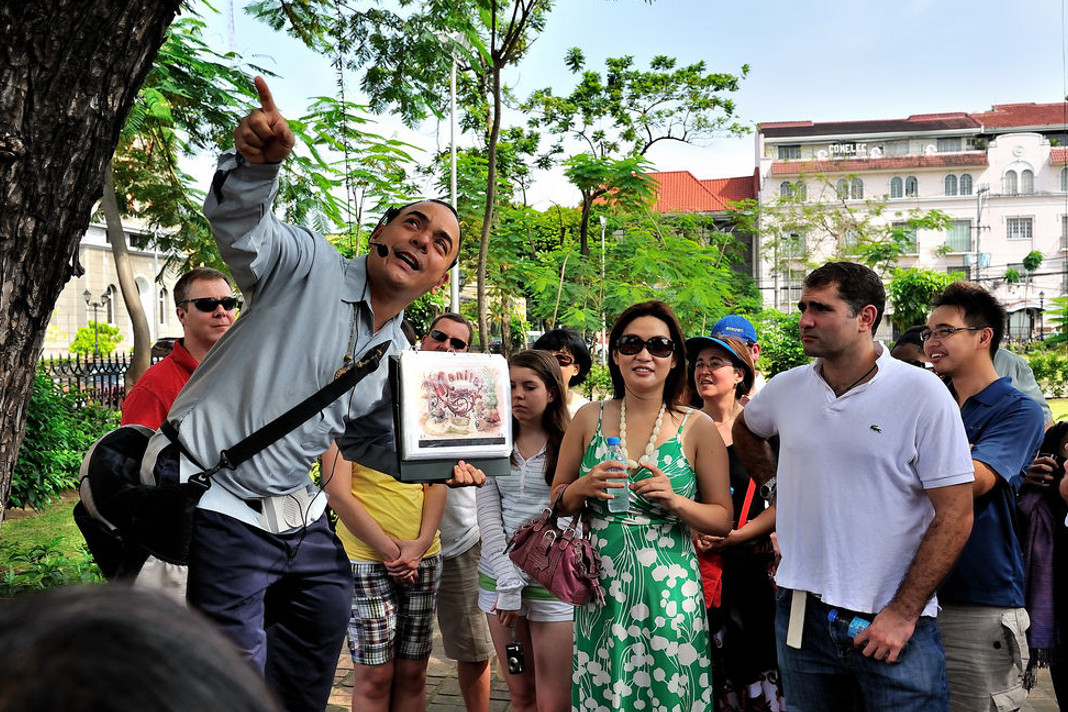Travelling abroad is an enthralling experience that offers splendid opportunities to people to know different cultures, languages and what not. However, despite all the good elements in such form of traveling, one cannot be ignorant of the palpable cultural, social and political differences since they are quite sensitive matters, to begin with. Thus, when you travel, you travel smartly and with consideration.
In this segment, we will talk about the same thing, but with respect to one of the most beautiful countries of all time—the Philippines. The Philippines is not just another south-east Asian country you might imagine but is an economic powerhouse with a rich culture, language and its own set of peculiar beliefs. Just like any other country, the Filipinos are quite touchy about a number of subject-matters, and thus, you should take due note of them while traveling.
Here, in this article, we will talk about 6 things one must never do in the Philippines. Keep each of the prohibitions in mind when you are on your way to this otherwise superbly incredible country. So, without further ado, let us begin with the list.

-
Insulting Filipino is a very, very bad idea
You might think it is naturally expected from visitors to respect the host nation, but the Philippines may stand out a little in this regard. Filipinos are inherently proud people, and they would not leave an opportunity to express their Filipino honour—and these forms of expression are a real thing!
Filipinos are very protective of their social, cultural and political environment, and if you are not cautious enough, even reasonable criticism could spiral into an altercation or maybe worse. Thus, keep it to yourself whatever negative feedback you might have about the country—go back home and blurt out all of it, but not among the Filipinos.
-
First names and elders
The Filipino society is a collective one, and the status of older people is unquestionably higher and dominating. If you are an older person here in the country, you get all the respect, not because of any compulsion, but out of a social habit.
The first mode of expression of respect is by not addressing elders by their first names. There are polite vernacular expressions with respect to age and authority employed for addressing people, and these expressions are not your any regular expressions without any substance.
Some examples are kuya¸older brother; tito, uncle; tita, aunt; and ate, older sister.
-
Do not come off too aggressive
While Filipinos are quite boastful of their national pride, they are, actually, quite passive and non-confrontational by nature. They are usually indirect in their feedback and would not readily say ‘no’ unless they are utterly offended.
When here in the Philippines, try being amiable with locals and suppress all those cocky and condescending mutterings you might usually indulge in. Even if they are not being straight about their decision, do not come off aggressive against them.
-
Do not value time
This can be especially tough for persons coming from countries with time-bound societies—the Philippines definitely does not fit in that group. Arriving on time is a bit of an unusual event because many Filipinos just simply do not consider its value.
There is what is commonly referred to as the “Filipino time” which is indicative of delay ranging from 15 minutes to 1 hour. If you have an engagement with a Filipino or are bound to attend a casual gathering, take your time. We bet even after having taken all your time, you might still end up arriving early.
-
Bizarre food names
Every country comes along with its own set of dishes to tickle your taste buds—and the Filipino cuisine is exceptionally ticklish. Filipino cuisine tastes great, but it is not something everyone could handle.
Here you will end up finding grilled chicken intestines known as isaw, boiled duck embryo called balut, or even a chopped up face of a pig stylishly placed on your plate. Well, this might gross out many people, even those who are reading this article—but this is Filipino food.
Weird the food may look, the cuisine is succulent and amazingly delicious, and it will be a downer if you leave the country without tasting it.
-
Driving in Manila may change your life
It is highly recommended not to drive when in Manila; drive only when it is absolutely necessary to do so because driving here is like getting caught up in a labyrinthine world of roads, lanes, and by-lanes which do not make sense.
Manila’s roads are highly congested and often directionless, and if you come from one of those countries with highly well-defined traffic system, driving here will be a huge shock to you! Just do not become all adventurous and try something you cannot really handle, okay?











